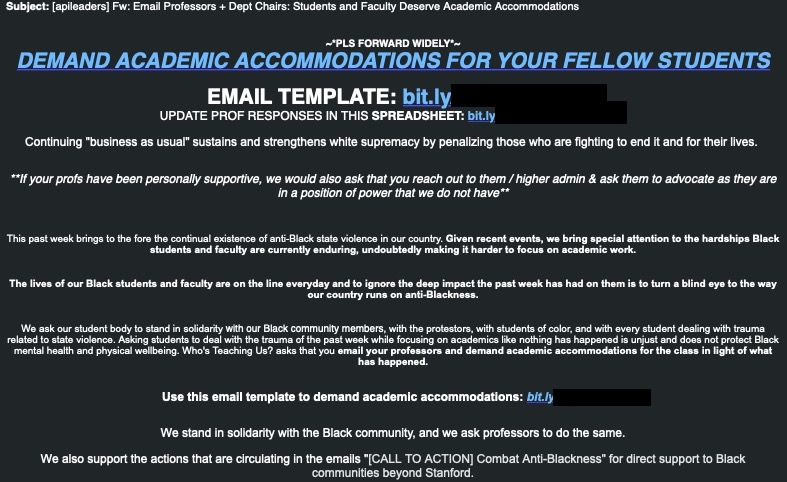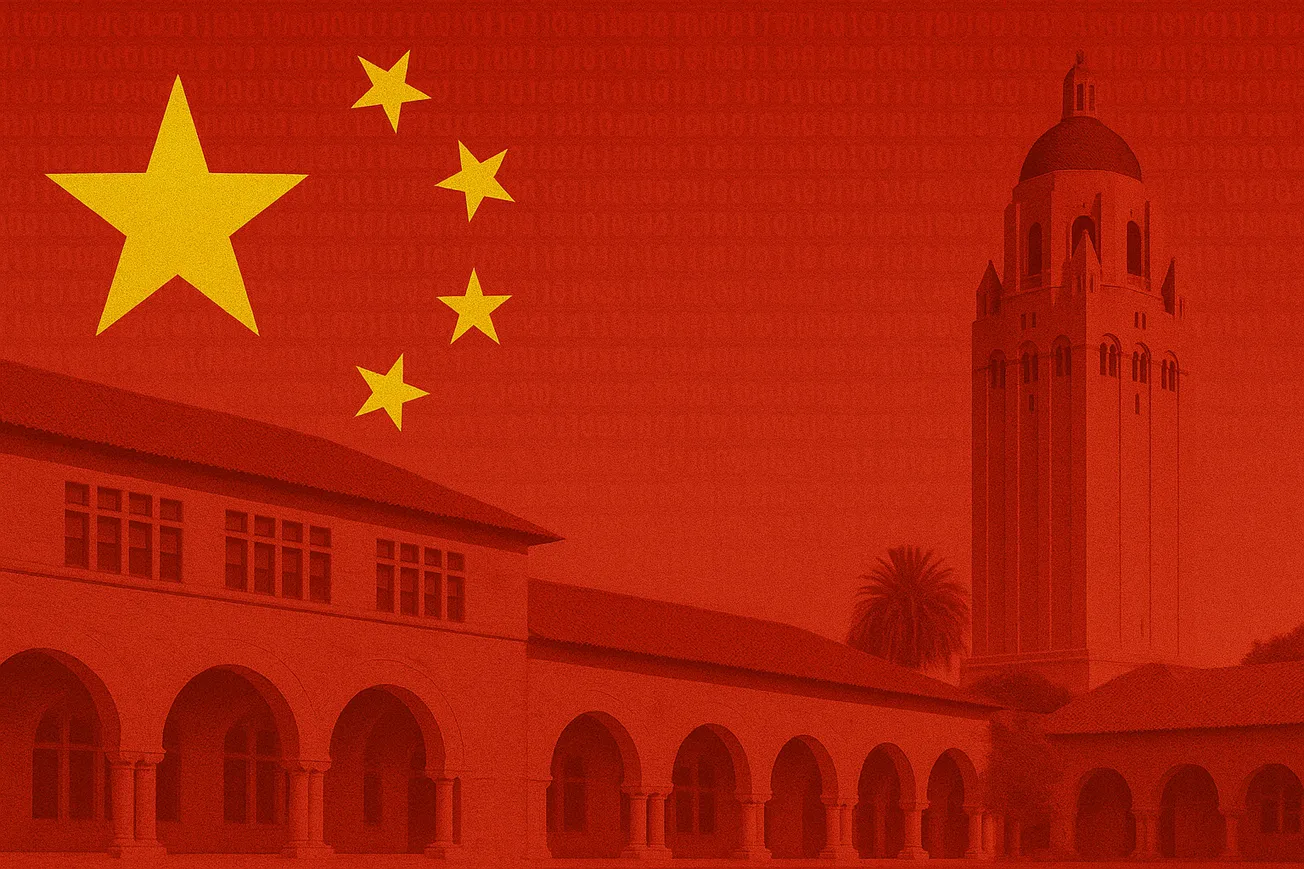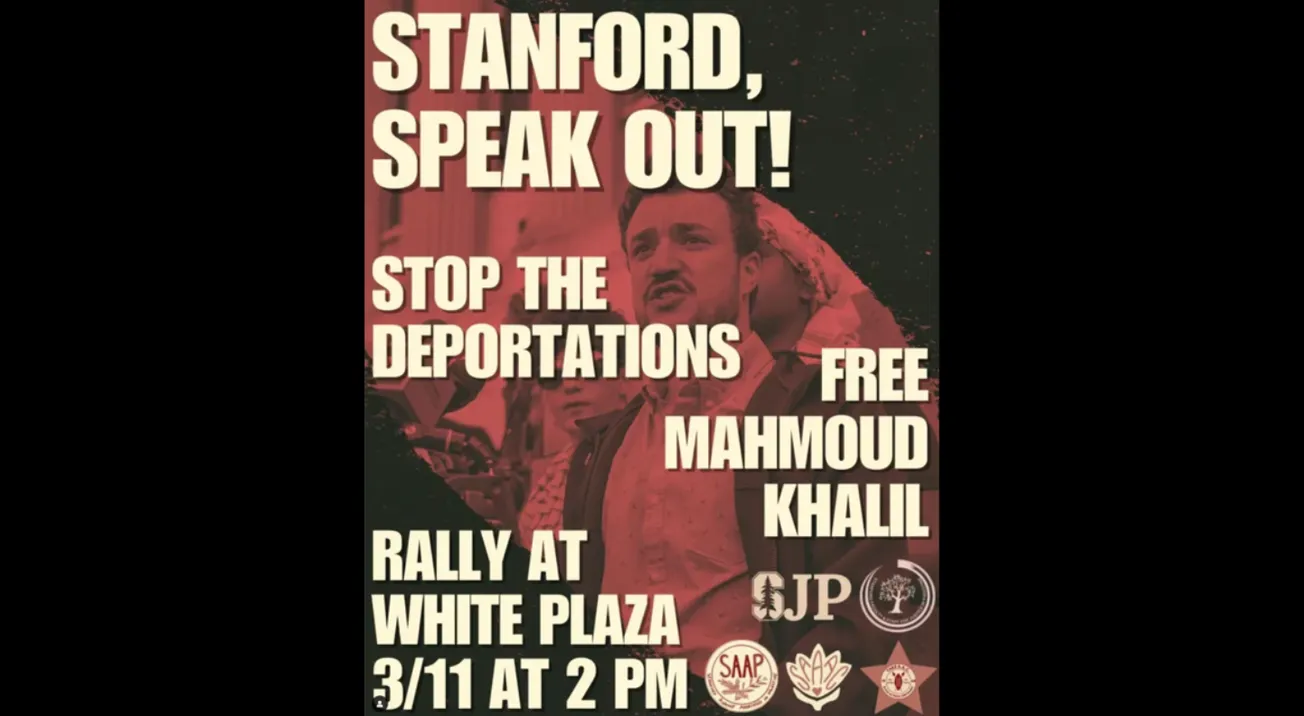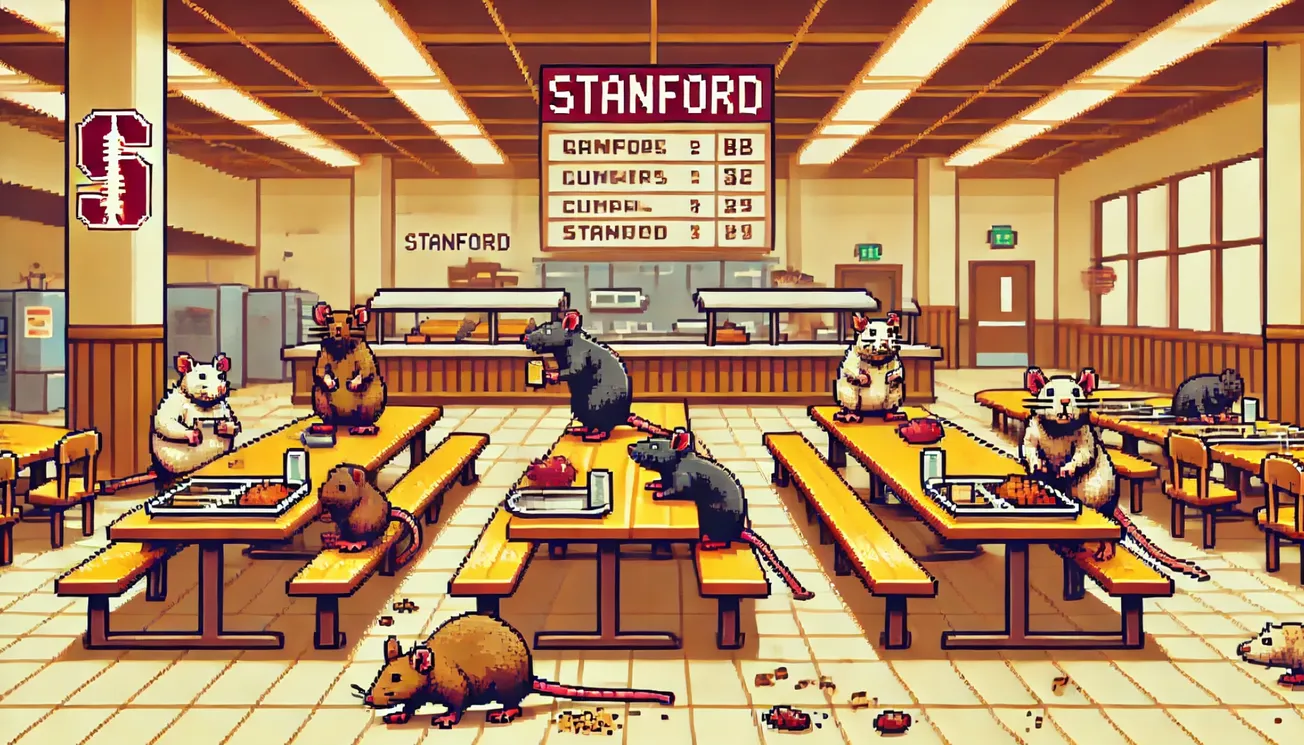Table of Contents
In the midst of the chaos that defined 2020—the early stages of the pandemic and widespread BLM riots—students at Stanford were at home for a quarter of remote learning. To accommodate for the newly adopted remote environment, Stanford made all courses pass-fail. Some unsatisfied students, however, decided to push for even greater concessions to further lower academic standards under the guise of racial justice.
“I am having trouble focusing on anything other than this and do not have the emotional capacity to complete schoolwork,” they said. “It is up to us, as non-black folks, to break the cycle of injustice and oppression, by doing things differently.” How differently?
Students cold emailed hundreds of professors to bring “special attention to the hardships Black students and faculty are currently enduring,” and they awaited a response, or lack thereof, from each of their professors. Students demanded that their professors express solidarity for racial justice causes and further strip academic standards by canceling projects, exams, and changing passing thresholds. Professors who met and supported the extreme demands of students to radically overhaul their academic standards received a green check. Those who didn’t—and retained even some basic academic standards, or those who merely did not make "any announcement acknowledging current events”—were blacklisted.
The Review has obtained a meticulously organized blacklist of over 200 Stanford professors created by students to strip academic standards under the guise of racial justice in 2020.
Towards the end of spring quarter 2020, students began to conspire with one another by circulating an email amongst students titled “Demand Academic Accommodations for Your Fellow Students.” In the email, students linked to an 11-page document and a Google Sheets spreadsheet to keep track of responses from every professor they emailed.

The email then linked students to the document that guided students on how to email professors and keep track of their responses. The document included various email templates for emailing professors and deans, a list of faculty emails, protesting tips, “anti-racist” resources, an additional folder to upload supportive statements from professors, and a donation list of racial justice organizations.
In the email template students created to send to professors, students would select whether they were a “Black/non-Black student” and say they were “writing to raise concerns for students, specifically Black students, impacted by protests across the nation.” Telling professors that “The lives of many of your students are on the line because of anti-Black violence,” they demanded a complete overhaul of academic standards so that they would “have the freedom to protest for their safety and further the movement.”
The requests were much more than merely raising “concerns for students.” Students hijacked the racial justice movement in order to bully professors into easing their academic standards. Keeping track of over 200 professors, those who did not satisfy the students' wishes—their demands to strip academic standards for the entire class—were blacklisted in a massive spreadsheet. The students gave professors a “positive” mark for “cancelled or optional assignments, projects, attendance, [and] exams” and blacklisted them for insufficiently meeting their demands with a “negative” mark.
Here’s an example of the spreadsheet:
The following professors were blacklisted (among others):
Professor Elizabeth Kessler: blacklisted even though she “offered to talk outside of class.”
Professors Julien Sage and Laura Attardi: blacklisted after saying they were willing to “discuss sending a message to students after fulfilling their other commitments.”
Professor Steven Boxer: blacklisted because he “Equated the injustice of police brutalization of black people to ‘injustice’ of cancelling a final paper for students who have already done it or would like a letter of recommendation in the future.”
Professor Dawson Engler: blacklisted because he didn’t “feel comfortable gutting the class for more than it has been by the pandemic.”
Professor John Young: blacklisted after saying he would take “suggestions into consideration” but he did not “acknowledge vocally what is going on” and “has not pushed back/cancelled upcoming due dates.”
Professor Aaron Lindenberg: blacklisted for not making “any announcement acknowledging current events.”
Students used the spreadsheet to exploit racial justice for academic accommodations and blacklist all who didn’t kow-tow to their demands. Offering accommodations for students who wanted more time to complete assignments so they could join the protests was often still unacceptable to the group: a complete overhaul of requirements for all students was the goal. The initiative was not intended to simply help struggling students during the trying times, but rather to initiate school-wide policies under the guise of racial justice that would strip academic standards and ease the already light workload for the rest of the student body.
Like many of the other movements and organizations during this period, these supposed racial justice initiatives exploited black people and hijacked the racial justice movement in America for the sake of pushing a political narrative, bullying all who opposed these irresponsible measures by labeling them as racists—or adding them to the blacklist.
There is a deep-rooted problem among students at our universities, and this blacklist only reveals the underpinnings of the issue. Today, students at America’s most prestigious universities have openly (and terrifyingly) supported Hamas, and many who once decried “cancel culture” have supported the doxxing of these individual students.
Those who now decry the doxxing of students who support the terrorist actions of Hamas must remember that these vices began long before. Justified or unjustified, today’s culture is the result of a “cancel culture” feedback loop initiated by the left in an attempt to quash any dissent and establish their own brave new world. Cancel culture has now inevitably pervaded every aspect of society and left no one—no group, political affiliation, religion, or belief—free from its vices.









